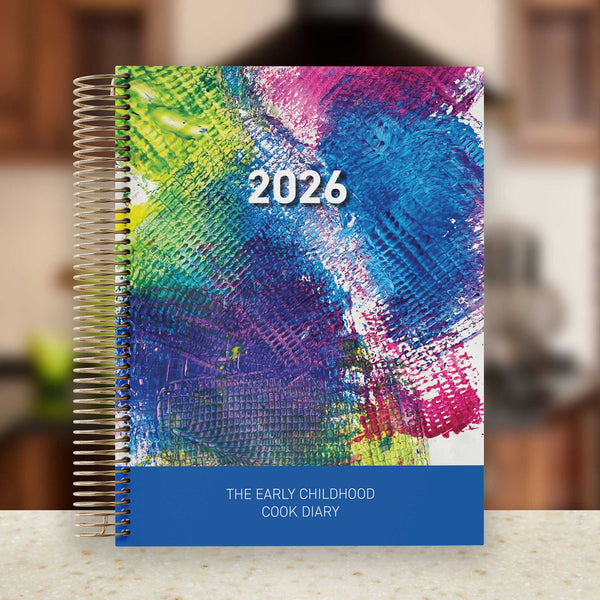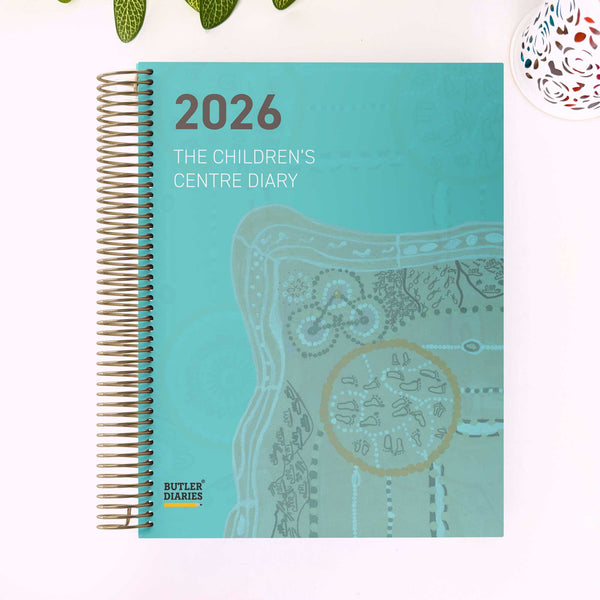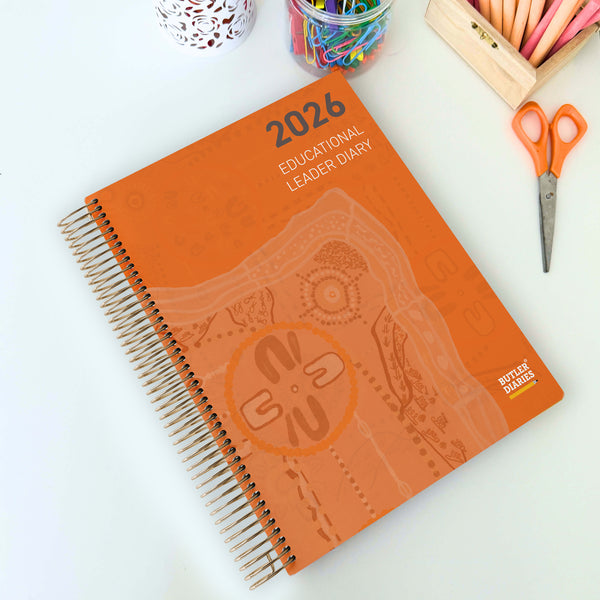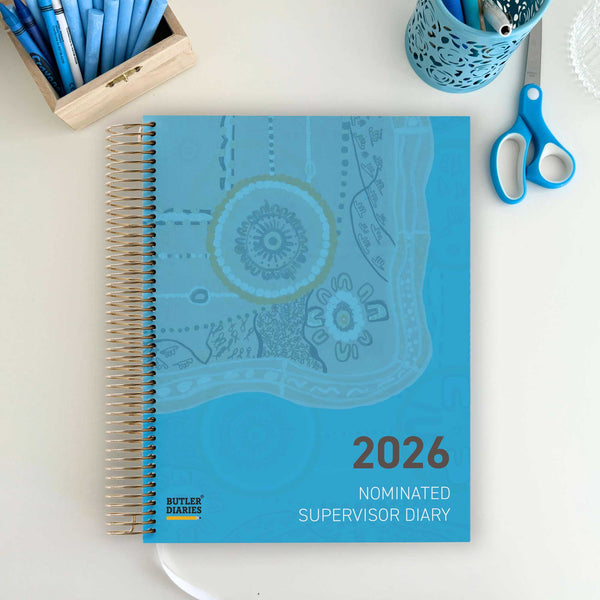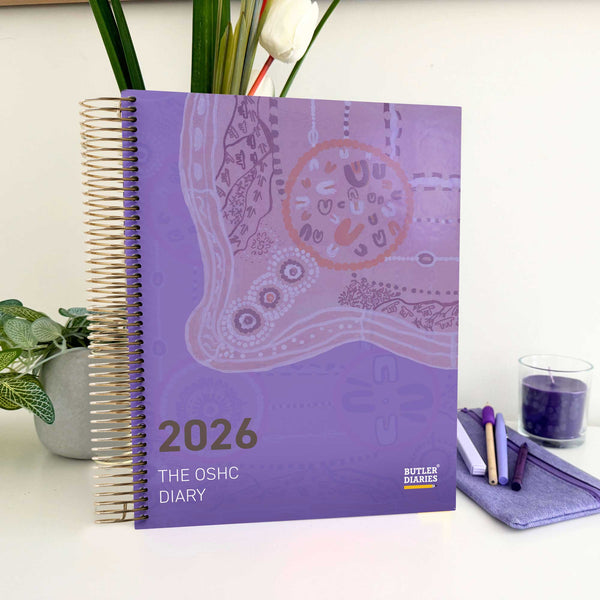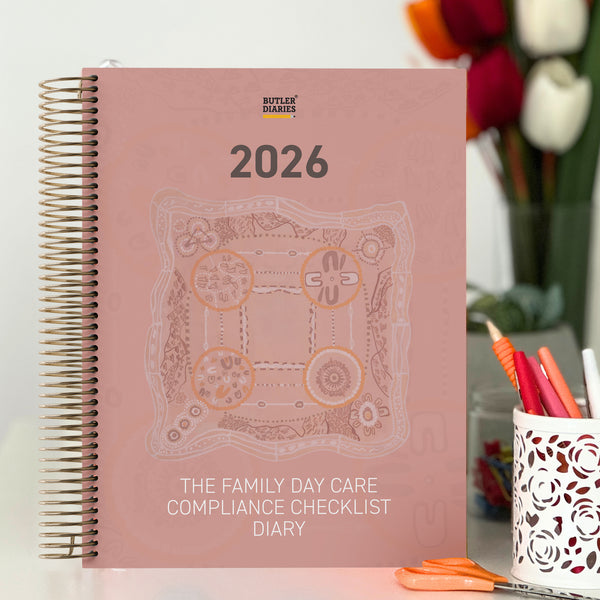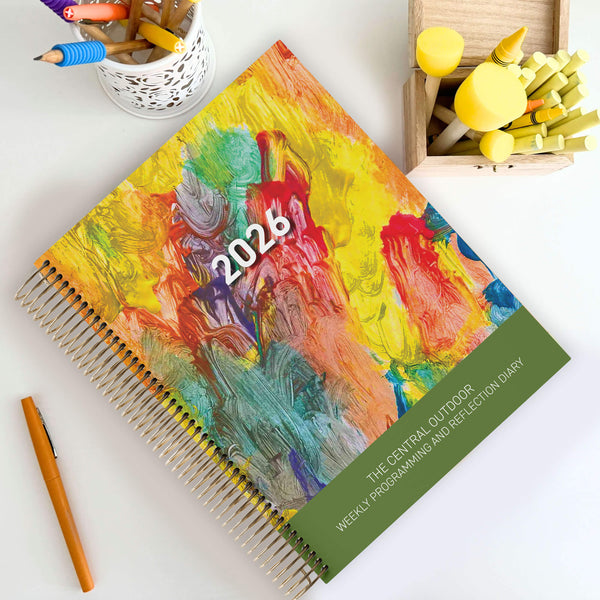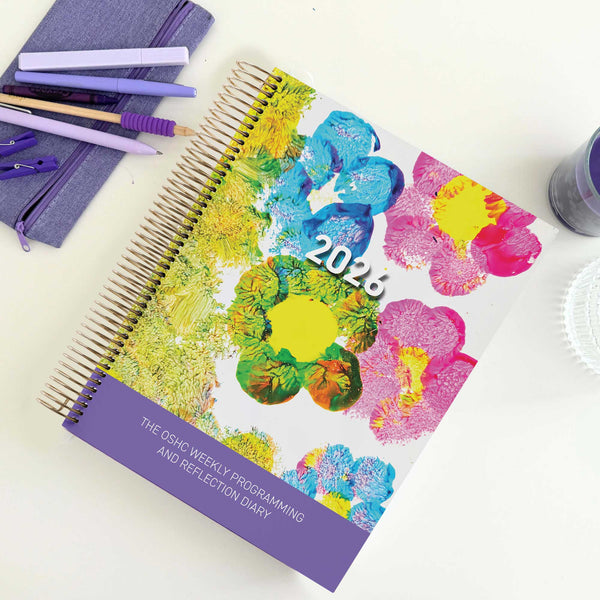Here's we take a peek into the Early Childhood Cook Diary to see how it can help cook's and chef's in Early Childhood manage their kitchens and stay on top of compliance.
Day Pages of the Early Childhood Cook Diary
Menu
Plan your menu every day to meet children's nutrition needs with the daily menu that accommodates purees, semi-solids, whole foods, and alternatives.
Use an online system? Easily snap a pic and upload!
Family or Service Correspondence
Quickly record correspondence as it happens from family or the service. This could be a notice of a casual booking that impacts meal numbers or alternatives offered or a special occasion that changes the menu. This reference helps you stay on track of changes that impact your kitchen.
Add to Shopping List
As you check use by dates or run out of products, record a note to add to your shopping list. By the end of the week, the majority of your shopping list has been completed.
Deliveries Received Today
Record the intake of deliveries and groceries to ensure quality and use by dates are appropriate. If anything is missing add it to your shopping list.
Out of Pocket Expenses
Had to grab something for the kitchen or picked up ingredients for a special activity? Record the expenses for reimbursement or to claim on your tax at the end of the year!
Maintenance Required
Keep track of maintenance required as it arises and complete the action taken whether that is notifying management, hiring someone to fix the issue, or fixing the issue yourself.
Special Occasions
Keeping track of special occasions will help you prepare as needed. Birthdays may mean adjusting afternoon tea for cupcakes brought in by a family member or a celebration may mean families have brought in plates of food and lunch isn't needed.
Fridge/ Freezer Temps
A helpful prompt and reminder for an important compliance record that helps keep food safe for consumption.
Getting the Most from the Day Pages of the Early Childhood Cook Diary
Using the Early Childhood Cook Diary helps keep kitchens organised and helps promote safe food handling. Consistency is bred through a day to a page layout that covers key compliance areas. The daily menu can be used to plan healthy, complete nutritious menus for children every day.
With so many important considerations of religion, special occasions and food intolerances and allergies, this helps cooks and chefs stay on top of everything.
Plan ahead and add any notes, like use by dates, special occasions, or maintenance dates to ensure nothing is missed.
Weekend Spread of the Early Childhood Cook Diary
Weekly Checklist
The weekly checklist is a helpful prompt that covers key compliance areas that are the responsibility of cooks and chefs. These cover pests, stock, management plans, etc.
Orders for Next Week
Once your shopping list has been ordered or given to your director to purchase, keep a note of the orders place, from where, and when to expect them so you are prepared for your deliveries and you have everything you need for your planned menu.
Monthly Pages in the Early Childhood Cook Diary
You can use the monthly notes page to record any other information you may need and the monthly overview for a quick view of any special days, occasions, or similar that impact your kitchen.
Front Pages in the Early Childhood Cook Diary
You'll have helpful support and summary pages on NQS, ALFs, school terms, diversity calendar, QIP goals, and more.
You also have a professional development summary, audit and maintenance checklist, action plan record, and policy, community and meeting notes. To see everything included in the Front Pages, download the Compliance eBook at the end of this blog.
Example


I have a Question...
Questions? We have a range of support!
Join our newsletter for support articles and keep an eye on our blog, we often include additional examples, tips and support.
You can also download the compliance eBooks from the Hard Cover Product Pages. You can download the Early Childhood Cook Diary Compliance eBook here.
You can of course always email us at info@butlerdiaries.com and we'd be happy to answer any questions you have!



















